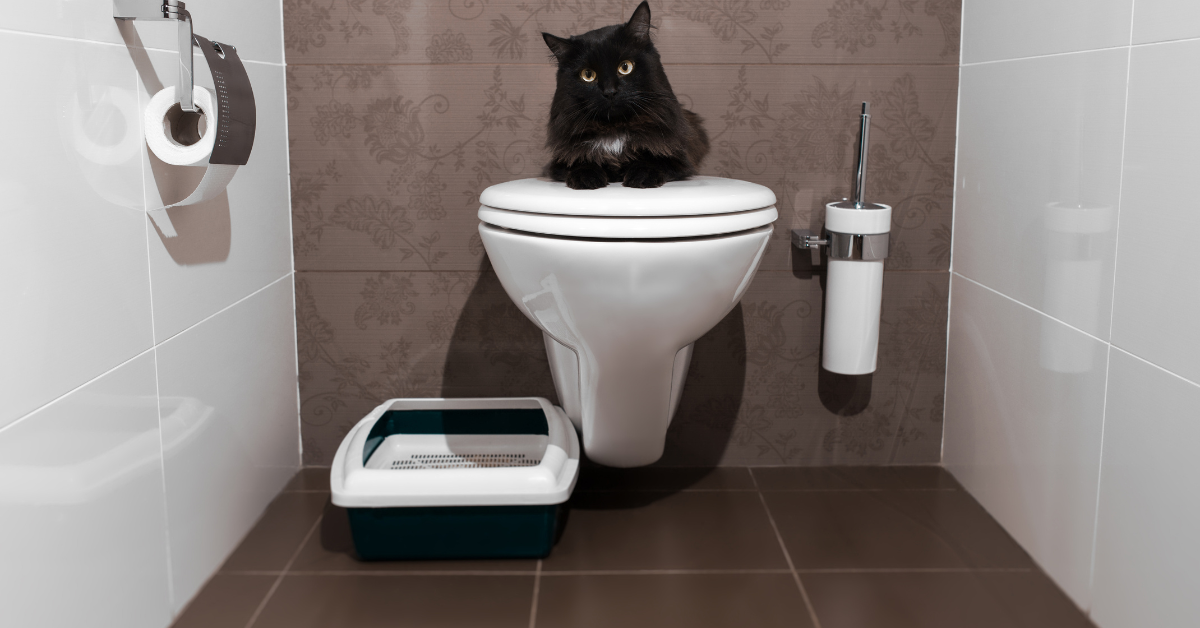Why Flushing Cat Poop Down Your Toilet Isn't a Good Idea - Advice for Proper Handling
Why Flushing Cat Poop Down Your Toilet Isn't a Good Idea - Advice for Proper Handling
Blog Article
They are making a few good annotation on Can You Flush Cat Poop Down The Toilet? overall in the article further down.

Introduction
As feline proprietors, it's vital to be mindful of how we dispose of our feline friends' waste. While it might appear convenient to purge pet cat poop down the commode, this method can have detrimental effects for both the atmosphere and human wellness.
Ecological Impact
Purging cat poop presents dangerous microorganisms and bloodsuckers right into the water, posturing a considerable danger to water environments. These contaminants can adversely influence marine life and compromise water high quality.
Wellness Risks
Along with ecological problems, purging feline waste can also posture health and wellness risks to humans. Cat feces might consist of Toxoplasma gondii, a bloodsucker that can trigger toxoplasmosis-- a potentially severe ailment, specifically for expecting ladies and individuals with weakened immune systems.
Alternatives to Flushing
Fortunately, there are safer and extra accountable ways to throw away feline poop. Take into consideration the adhering to options:
1. Scoop and Dispose in Trash
One of the most common technique of throwing away pet cat poop is to scoop it right into a naturally degradable bag and throw it in the trash. Make certain to utilize a specialized clutter inside story and take care of the waste without delay.
2. Usage Biodegradable Litter
Choose eco-friendly pet cat clutter made from products such as corn or wheat. These trashes are environmentally friendly and can be securely gotten rid of in the garbage.
3. Bury in the Yard
If you have a backyard, consider hiding feline waste in a designated location away from veggie yards and water sources. Be sure to dig deep enough to stop contamination of groundwater.
4. Set Up a Pet Waste Disposal System
Buy a family pet garbage disposal system particularly made for cat waste. These systems make use of enzymes to break down the waste, decreasing smell and environmental influence.
Conclusion
Liable pet ownership expands beyond supplying food and sanctuary-- it additionally includes appropriate waste management. By avoiding purging cat poop down the toilet and opting for different disposal techniques, we can lessen our ecological impact and secure human health.
Why You Should Never Flush Cat Poop Down the Toilet
A rose by any other name might smell as sweet, but not all poop is created equal. Toilets, and our sewage systems, are designed for human excrement, not animal waste. It might seem like it couldn’t hurt to toss cat feces into the loo, but it’s not a good idea to flush cat poop in the toilet.
First and foremost, assuming your cat uses a litter box, any waste is going to have litter on it. And even the smallest amount of litter can wreak havoc on plumbing.
Over time, small amounts build up, filling up your septic system. Most litter sold today is clumping; it is made from a type of clay that hardens when it gets wet. Ever tried to scrape old clumps from the bottom of a litter box? You know just how cement-hard it can get!
Now imagine just a small clump of that stuck in your pipes. A simple de-clogger like Drano isn’t going to cut it. And that means it’s going to cost you big time to fix it.
Parasitic Contamination
Believe it or not, your healthy kitty may be harboring a nasty parasite. Only cats excrete Toxoplasma in their feces. Yet it rarely causes serious health issues in the cats that are infected. Most people will be fine too if infected. Only pregnant women and people with compromised immune systems are at risk. (If you’ve ever heard how women who are expecting are excused from litter cleaning duty, Toxoplasma is why.)
But other animals may have a problem if infected with the parasite. And human water treatment systems aren’t designed to handle it. As a result, the systems don’t remove the parasite before discharging wastewater into local waterways. Fish, shellfish, and other marine life — otters in particular — are susceptible to toxoplasma. If exposed, most will end up with brain damage and many will die.
Depending on the species of fish, they may end up on someone’s fish hook and, ultimately on someone’s dinner plate. If that someone has a chronic illness, they’re at risk.
Skip the Toilet Training
We know there are folks out there who like to toilet train their cats. And we give them props, it takes a lot of work. But thanks to the toxoplasma, it’s not a good idea.

Do you enjoy reading up on How to Dispose of Cat Poop and Litter Without Plastic Bags? Try to leave a short review directly below. We will be glad to see your insights about this write up. Hoping to see you back again in the future. Do you know about somebody who is in to the niche? Please feel free to promote it. Many thanks for going through it.
Book A Service Report this page